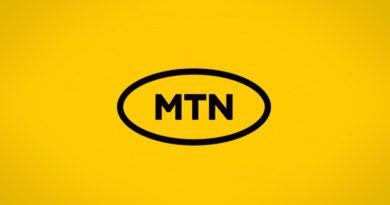Top startup founders share their stories of struggles and failures and what they learnt from them
In one of his letters to his shareholders, Jeff Bezos once said, “Nine times out of ten, you’re going to fail. But every once in a while, you’ll hit a home run that in business terms is more like one thousand runs. Given a ten percent chance of a one hundred times payoff, you should take that bet every time.” Coming from the world’s second-richest person who founded Amazon from a garage, it sure tells a lot about how startup founders should learn from their failures.
Back home too, several startup founders have learnt from their failures and emerged successfully. For upGrad founders Mayank Kumar and Phalgun Kompalli, the mantra is ‘decide, act, and move on.’ “We operate in such evolving times that in order to stay relevant we have to be prompt and decisive to make the right choices at the right time. Also, giving ownership to the right team and letting them handle is critical to driving the business correctly.” Some of the biggest lessons that they learnt from the failures were how to convince the market about online education, how to convince the market on price points, determining the right experience for an online audience, and determining the right team at different stages of the growth for the organisation.
If you use earphones/headphones, chances are high that they are of boAt. With a 30 per cent market share, it is currently the number one player in its segment. But it wasn’t an easy sail for Aman Gupta, Co-founder and CMO of boAt. “Consumer electronics was a highly commoditised market with a lot of global and local players so pricing and distribution were the two biggest challenges that we faced. But we didn’t compete on pricing, we offered better-engineered earphones and headphones that looked ‘stylish & cool’,” he said. Two big lessons that Gupta learnt was to stop procrastinating and strive for high employee satisfaction Index. “We have hired members who understood and spoke the language of our target audience — millennials and Gen Z. Having registered a 35 per cent surge in demand, we went on a hiring spree during COVID and also gave salary hikes.”
For Zerodha, one of India’s latest unicorns, the challenges have been different at various points in the journey. The first few years was garnering credibility; customers wouldn’t trust a new brand, especially one with much lower costs with their money. “Being bootstrapped also meant that we had to take concentrated bets. As competition caught up on the business model, the next challenge was transitioning from a brokerage firm to being a Fintech,” said Nithin Kamath, Founder & CEO, Zerodha. Some of the lessons that Kamath learnt from his initial struggles are: “Don’t try to cut-copy-paste what others are doing — it mostly doesn’t work. The chase has to be to get up every day and say, ‘How can we do something better for our customers today?’ The rest, if it has to, will follow,” he said.
Anyone who has visited Bangalore knows traffic jams are a common phenomenon here, making two-wheelers the most preferred mode of transport. In order to provide an alternative to cabs, Vivekananda Hallekere founded Bounce, a dockless self-drive scooter service that uses a patented keyless technology that lets a user pick up the nearest Bounce scooter and drop it off at any legal parking zone near their destination. But the road to success was quite bouncy. “No one believed that it was a real problem to be solved through scooters. Plus, people thought it’s stupid to have unsupervised assets in India. And getting IoT talent here was a nightmare,” said Hallekere. But Vivek wasn’t ready to give up. He continued making long-term investments in tech and EV and started scouting for talent across the globe.
For a startup to succeed, it needs to have a unique selling point. For NoBroker.com, that USP was the complete absence of any kind of brokerage. Basically, an absolute broker ban, a feature plugged in with the help of algorithms and other tech tools. But breaking the brokers’ net wasn’t a cakewalk. “We were trying to address an issue that had been plaguing the Indian real estate sector for generations. It, therefore, took us almost a year and rejection from 20 investors to finally find an investor. But once we had our first round of funding, there was no looking back,” said Akhil Gupta, Co-founder and CTO, Nobroker. The company office was once vandalised by a mob of brokers, forcing the staff to work out of makeshift offices. “That incident made us realise that we were definitely creating an impact.”
Siddharth Jain, an ardent lover of tea, was part of the banking world in Singapore, till about 2012. But a startup dream and bringing real-brewed iced tea to the market made him establish Brewhouse. After some initial home experiments, the company was finally launched in 2017 and converted to fully organic in October 2019. The road to success, however, wasn’t as sweet as its product. “We are creating a high-quality product category which is very nascent in India. So, while the response in select channels like hotels, cinemas and restaurants has been fantastic, expanding distribution reach has been challenging beyond the top 400-500 stores in large cities and 100-200 stores in smaller cities.” To meet the challenges, Jain has created a new product range, which will be easier for the consumer to understand through sharper, local messaging and innovative products that suit the Indian palate.
Meet the Drapers is a groundbreaking Silicon Valley entrepreneurial show where the Draper Family hunts for the next billion-dollar idea and the viewers get to invest in their favourite companies. To learn more about Meet the Drapers, click here.

The article has been written by Pallavi Chakravorty from The Times Group.
Disclaimer: This article has been produced on behalf of Meet the Drapers by Times Internet’s Spotlight team.
Times of India




